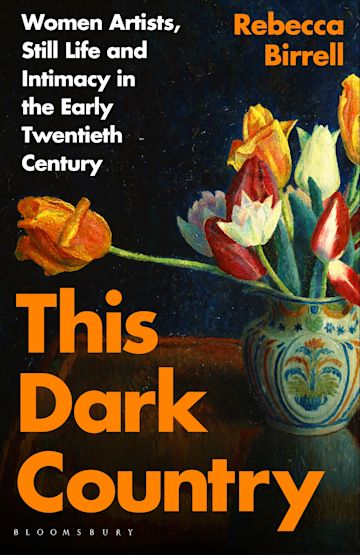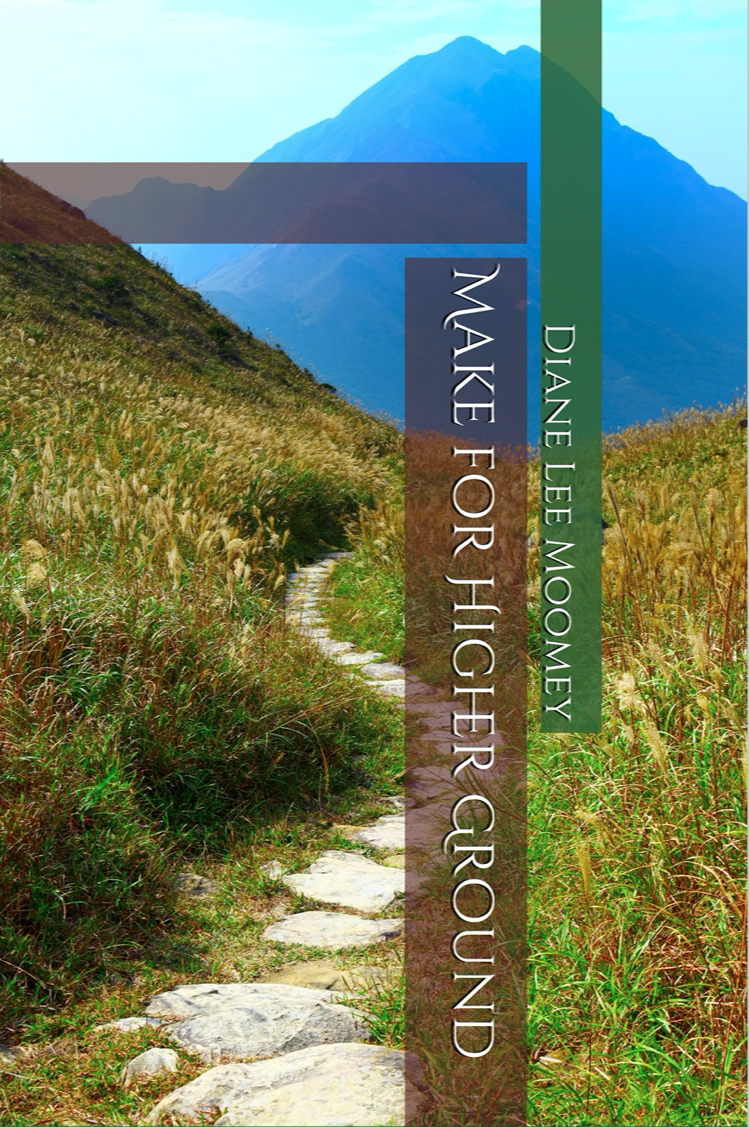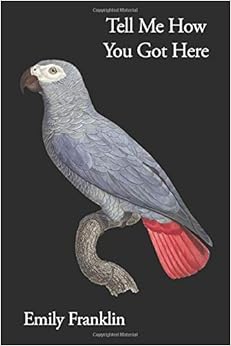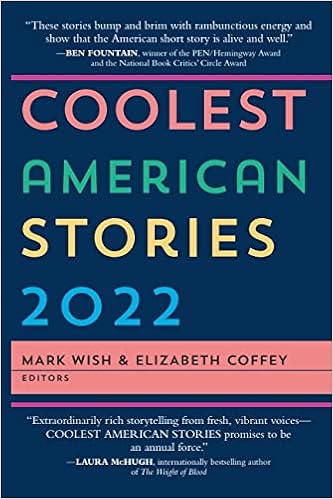 We have a copy of The American Dream of Braven Young by Brooke Raybould to give away!
We have a copy of The American Dream of Braven Young by Brooke Raybould to give away!
To win, sign up for our Free Newsletter on the right-hand side of the site and enter via the newsletter. Winner will be chosen by the end of January from subscribers who enter via the newsletter. Good luck!
 I adore this book, particularly as, growing up with a very creative single mother, I have intimate memories of spending one weekend where she, my brother and I painted all the bath panels, doors and cupboards of one of our houses with mermaids, nudes and still-lifes, inspired by the Charleston Homestead. I was enthralled from a young age with the worlds these femme artists created, their dreaminess and boldness to go against the grain of strict class, sexuality and gender expectations.
I adore this book, particularly as, growing up with a very creative single mother, I have intimate memories of spending one weekend where she, my brother and I painted all the bath panels, doors and cupboards of one of our houses with mermaids, nudes and still-lifes, inspired by the Charleston Homestead. I was enthralled from a young age with the worlds these femme artists created, their dreaminess and boldness to go against the grain of strict class, sexuality and gender expectations. All in all, The Accidental Suffragist is an intriguing, poignant, and gripping story that takes its readers on a whirlwind ride through vital history and does so with admirable pacing, authentic world building, and well-crafted sentences, along with its sympathetic and vivid characters—and above all else, a captivating story.
All in all, The Accidental Suffragist is an intriguing, poignant, and gripping story that takes its readers on a whirlwind ride through vital history and does so with admirable pacing, authentic world building, and well-crafted sentences, along with its sympathetic and vivid characters—and above all else, a captivating story. The descriptive narrative sets the stage, allowing the reader to step into the story and feel a part of it. Dialogue is well constructed, paying particular attention to the topics of discussion and the vocabulary relevant to this era. The protagonist, Annie, is a fun-loving young woman with a passion to succeed, to make something of herself, and to follow her dreams.
The descriptive narrative sets the stage, allowing the reader to step into the story and feel a part of it. Dialogue is well constructed, paying particular attention to the topics of discussion and the vocabulary relevant to this era. The protagonist, Annie, is a fun-loving young woman with a passion to succeed, to make something of herself, and to follow her dreams.  Spiers’ poems are haiku-like. In addition to what we may have learned about haiku in grade school—the tight syllable count, the reference to a season—haikus also juxtapose images and create a sudden sense of enlightenment. Instead of three lines, Spiers consistently makes these poems all four with syllables ranging from 7-10 a line, but they still retain a haiku’s compression, focus on imagery, and juxtaposition.
Spiers’ poems are haiku-like. In addition to what we may have learned about haiku in grade school—the tight syllable count, the reference to a season—haikus also juxtapose images and create a sudden sense of enlightenment. Instead of three lines, Spiers consistently makes these poems all four with syllables ranging from 7-10 a line, but they still retain a haiku’s compression, focus on imagery, and juxtaposition. Patrick Connors’ poems are unpretentious and refreshingly authentic. The Other Life is a flowing read. There were times I stopped to savor and ponder his words. We readers are invested and interested in learning the nuances of specific character’s lives. Connors speaks clearly.
Patrick Connors’ poems are unpretentious and refreshingly authentic. The Other Life is a flowing read. There were times I stopped to savor and ponder his words. We readers are invested and interested in learning the nuances of specific character’s lives. Connors speaks clearly. Billy Lombardo’s novel Morning Will Come captures a family in the unrelenting grip of grief. When Audrey and Alan Taylor’s teenage daughter Isabel goes missing, they and their two younger sons Dex and Sammy must contend with what remains, with the continuous presence of her absence. Lombardo both magnifies and expands this absence through language tight and unsparing.
Billy Lombardo’s novel Morning Will Come captures a family in the unrelenting grip of grief. When Audrey and Alan Taylor’s teenage daughter Isabel goes missing, they and their two younger sons Dex and Sammy must contend with what remains, with the continuous presence of her absence. Lombardo both magnifies and expands this absence through language tight and unsparing. A gorgeous collection full of sky and light, these poems tell stories that remember, long for, miss and sustain love. Importantly, there is nothing saccharin here. Indeed, the last poem ends ominously, “Making coffee, breaking camp—/we do this well together,/but whitecaps, winds and lowered skies; promise heavy weather.” And that’s the point. Higher ground is not a panacea; it isn’t even a place. It is a way of being in the world that Moomey gently urges in this compelling collection.
A gorgeous collection full of sky and light, these poems tell stories that remember, long for, miss and sustain love. Importantly, there is nothing saccharin here. Indeed, the last poem ends ominously, “Making coffee, breaking camp—/we do this well together,/but whitecaps, winds and lowered skies; promise heavy weather.” And that’s the point. Higher ground is not a panacea; it isn’t even a place. It is a way of being in the world that Moomey gently urges in this compelling collection. Emily Franklin’s debut poetry collection Tell Me How You Got Here is an emotional exploration of the ways family and possessions become embedded in our consciousness, perhaps even lodged in our DNA. Our attempts to soothe the pain of inherited memories by “forgetting, mottling as salve/for the soul” are often fruitless because the “potholes of memory” make erasure impossible.
Emily Franklin’s debut poetry collection Tell Me How You Got Here is an emotional exploration of the ways family and possessions become embedded in our consciousness, perhaps even lodged in our DNA. Our attempts to soothe the pain of inherited memories by “forgetting, mottling as salve/for the soul” are often fruitless because the “potholes of memory” make erasure impossible.  One of the coolest things about the thirteen stories that make up this collection and makes them legitimate contenders for the title is the sense of revelation that each embodies, whether it’s a poignant insight into love or suicide or your “otherness,” or even just the quotidian awareness of being hungry after watching a lion bite off your mob boss’s head, as in S.A. Cosby’s hilarious noir, “Pantera Rex.” Each of these stories has its moment, some more subtle than others, some more dire. (Look no further than the first story, Lori D. Johnson’s “Shepherd’s Hell,” if you’re looking for “dire.”)
One of the coolest things about the thirteen stories that make up this collection and makes them legitimate contenders for the title is the sense of revelation that each embodies, whether it’s a poignant insight into love or suicide or your “otherness,” or even just the quotidian awareness of being hungry after watching a lion bite off your mob boss’s head, as in S.A. Cosby’s hilarious noir, “Pantera Rex.” Each of these stories has its moment, some more subtle than others, some more dire. (Look no further than the first story, Lori D. Johnson’s “Shepherd’s Hell,” if you’re looking for “dire.”)